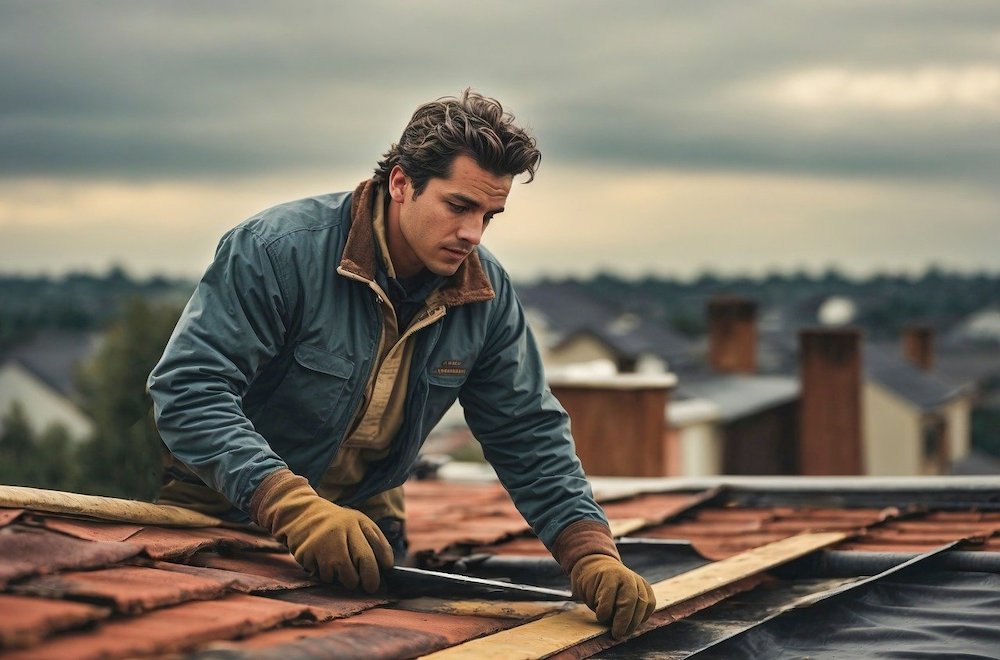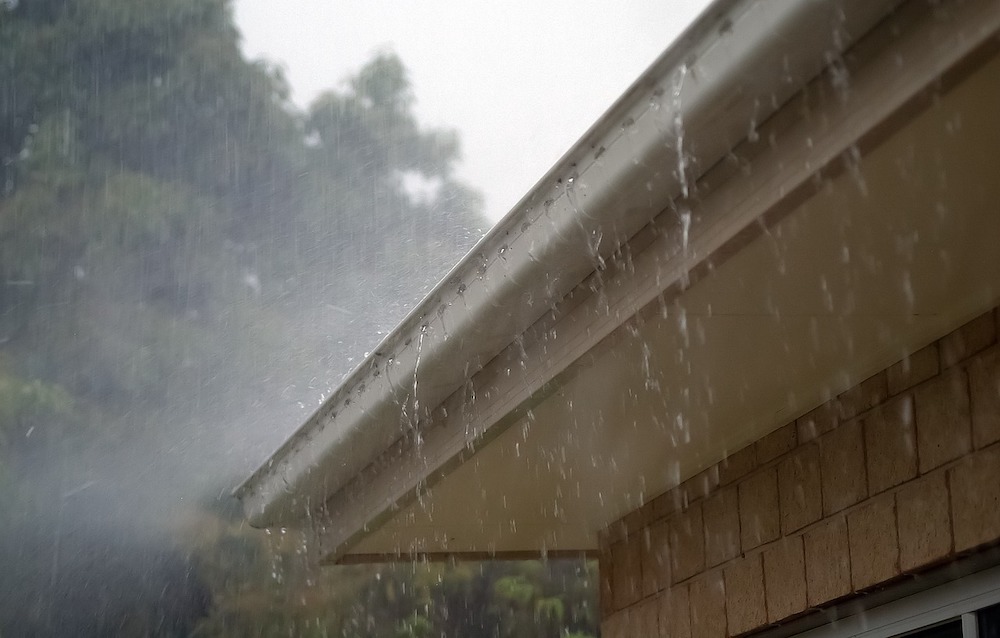Your roof is one of the most vital components of your home, protecting your property from weather elements and helping maintain energy efficiency. But when issues arise, homeowners often face a crucial decision: roof repair vs. replacement. Knowing whether to repair or replace a roof depends on factors like the roof’s age, the extent of the damage, and your budget.
In this guide, we’ll cover the key considerations in deciding whether to repair vs replace a roof, cost implications, and the benefits of both options. Whether you’re dealing with a few damaged shingles or larger structural issues, this post will help you make an informed decision that’s cost-effective and beneficial in the long run.
Key Factors to Consider: Repair or Replace Roof?
When determining whether roof repair or replacement is the best option, several key factors come into play:
- Age of the Roof: Roofs have a finite lifespan, and age plays a significant role in deciding on repairs or a full replacement. Asphalt shingle roofs generally last 15-25 years, metal roofs up to 50 years, and tile roofs even longer. If your roof is nearing or has exceeded its lifespan, roof replacement may be more cost-effective than frequent repairs.
- Extent of Damage: Assessing the damage is crucial in the roof repair vs. replacement debate. Minor issues like isolated leaks or a few missing shingles can often be addressed with house roofing repair. However, widespread damage, such as extensive leaks, rot, or structural issues, usually calls for replacement.
- Cost and Budget: While repairs are generally less expensive upfront, repeated repairs over time can add up, potentially costing more than a replacement. Understanding roof replacement cost and comparing it to cumulative repair expenses helps clarify which option is more cost-effective. Additionally, a roof replacement can be financed. A low monthly payment for a new roof may look more attractive than a larger chunk of money all at once from a repair.
- Energy Efficiency: Older roofs tend to lose energy efficiency, leading to higher utility bills. Replacing your roof can improve insulation and lower energy costs, potentially offsetting some of the replacement expenses.
Roof Repair vs. Replacement: Pros and Cons of Repairing Your Roof
Repairs are a practical solution for many homeowners, especially if the roof is relatively new or the damage is minor. Here’s a closer look at the pros and cons of opting for roof repair and replacement versus a full replacement.
Pros of Roof Repair:
- Cost-Effective: In many cases, repairing roof shingles or addressing isolated issues is more affordable than a full replacement, especially when damage is minimal.
- Quick and Convenient: Most roof repairs are quick to complete and don’t require extensive labor or disruption.
- Preserves Roofing Materials: Repairing rather than replacing allows you to maximize the lifespan of your current materials, saving on both costs and waste.
Cons of Roof Repair:
- Frequent Repairs: Repairs can become frequent and costly if a roof is approaching the end of its lifespan. At this point, it is crucial to consider whether to repair or replace roof shingles entirely.
- Limited Coverage: Repairs often address symptoms rather than root causes. If underlying structural issues are missed, they can resurface, leading to bigger problems.
When to Consider Roof Replacement
Roof replacement is a more extensive investment than repair, but it provides a fresh start for your home’s structure and longevity. If you’re debating roof repair or replacement, here’s when you would consider a full roof replacement:
- Advanced Age: As roofs age, they lose structural integrity and develop issues like leaks and shingle deterioration. If your roof is 15 years old or older and showing signs of wear, replacing it can be more cost-effective in the long term.
- Extensive Damage: Large-scale damage, such as severe storm damage, water infiltration, or structural weakness, may make replacement a better choice.
- Resurfacing Roof: In some cases, a partial resurfacing of the roof can help, but resurfacing isn’t a solution for deep or widespread damage.
- Energy Savings: A new roof typically improves insulation and reflects heat, enhancing energy efficiency and reducing utility costs.
Cost Comparison: Roof Repair vs. Replacement
Cost is often the deciding factor in the roof repair vs. replacement debate. Here’s a breakdown of costs for both options:
Roof Repair Cost
If you’ve typed “roof repair cost near me” into a search engine, you’ll notice that cost varies based on the type of repair needed and your location. Minor repairs, like patching leaks or replacing a few shingles, can range from $150 to $1,500, depending on labor and materials. The average cost for more extensive repairs typically falls between $1,000 and $3,000, especially for larger issues like fixing leaks or reinforcing the roof’s structural components.
While repairs can be quick, multiple small repairs can add up, potentially costing more than a one-time replacement.
Roof Replacement Cost
Roof replacement cost generally ranges between $5,000 and $15,000, depending on the roof size, materials, and labor costs. While this upfront cost exceeds individual repairs, replacing the roof provides a long-term solution that eliminates frequent repairs.
When calculating roof replacement cost, it’s essential to consider the type of roofing material. For example:
- Asphalt shingles: $5,000 – $10,000
- Metal roofs: $8,000 – $20,000
- Tile roofs: $10,000 – $25,000
These prices vary widely, so it’s best to consult a roofing contractor for a precise estimate.
Repair or Replace Roof? Evaluating the Lifespan of Different Roofing Materials

The lifespan of your roof depends largely on the material used, impacting the decision to repair or replace roof shingles. Here’s a general guideline:
- Asphalt Shingles: 15-25 years
- Metal Roofing: 40-70 years
- Tile Roofing: 50+ years
- Flat Roofs: 10-20 years
If your roof’s age aligns with or surpasses these averages, it may be time for a replacement. A qualified roofer can assess the condition and recommend whether roof repair or replacement is most cost-effective based on your roof’s age and material.
Resurfacing Roof: Is It an Option?
In some cases, resurfacing the roof by adding new layers of shingles over existing ones can provide a temporary solution. Resurfacing is less invasive than a full replacement and can be affordable. However, not all roofs qualify for resurfacing; this option only addresses surface-level issues. Structural problems, underlying leaks, and significant aging will still require replacement.
Can a Roof Be Repaired Instead of Replaced?
Can a roof be repaired instead of replaced? Absolutely. In minor or moderate damage cases, a repair is often all that’s needed. For instance, if only a few shingles are damaged, repairing roof shingles may be a quick and affordable fix. However, replacement may be more economical if your roof has multiple problem areas or is nearing the end of its expected lifespan.
Getting a Professional Assessment
Determining whether to repair or replace a roof can be challenging, especially without expertise in roofing. Consult a professional roofing contractor to accurately diagnose your roof’s condition. They can evaluate whether repairs will suffice or if a replacement is necessary for long-term cost savings.
Many roofing contractors offer free inspections, so take advantage of this service. A trusted professional can guide you through the roof repair and replacement process, explaining options that fit your budget and addressing specific issues unique to your roof.
Making the Best Choice for Your Roof
Choosing between roof repair vs. replacement is a significant decision with long-term implications. While repairs are often cost-effective for newer roofs with minimal damage, an aging roof or one with extensive issues may benefit more from a replacement. Considering factors like age, damage extent, cost, and material lifespan, you can make a well-informed choice that balances cost and value.
For the best results, work with a licensed roofing contractor who can assess your roof’s specific needs and provide a transparent cost comparison for roof repair and replacement. With the right approach, you’ll enjoy a safe, efficient roof that protects your home and enhances its value. If you’re in Florida, contact us today to schedule a consultation or to learn more about our roof repair and replacement services. Whether you need a minor house roofing repair or are ready for a complete replacement, West Bay Home Energy’s Florida roofing contractors are here to help you make the best choice for your home’s needs.
You May Also Like:






